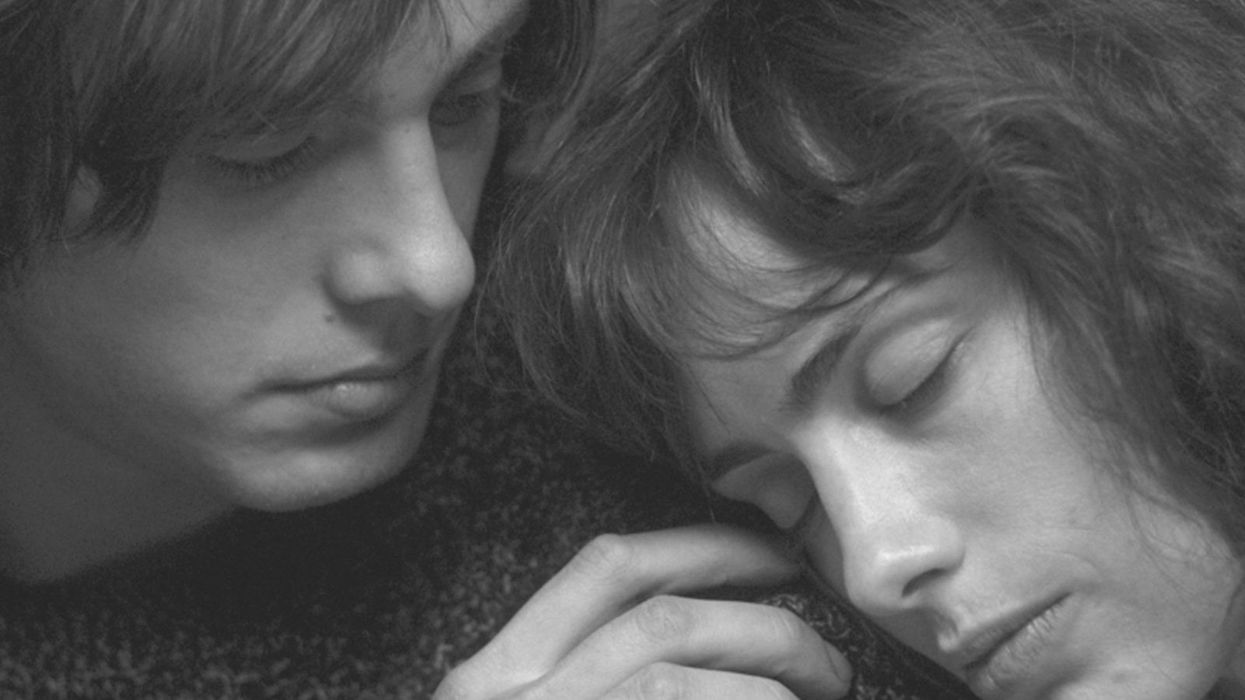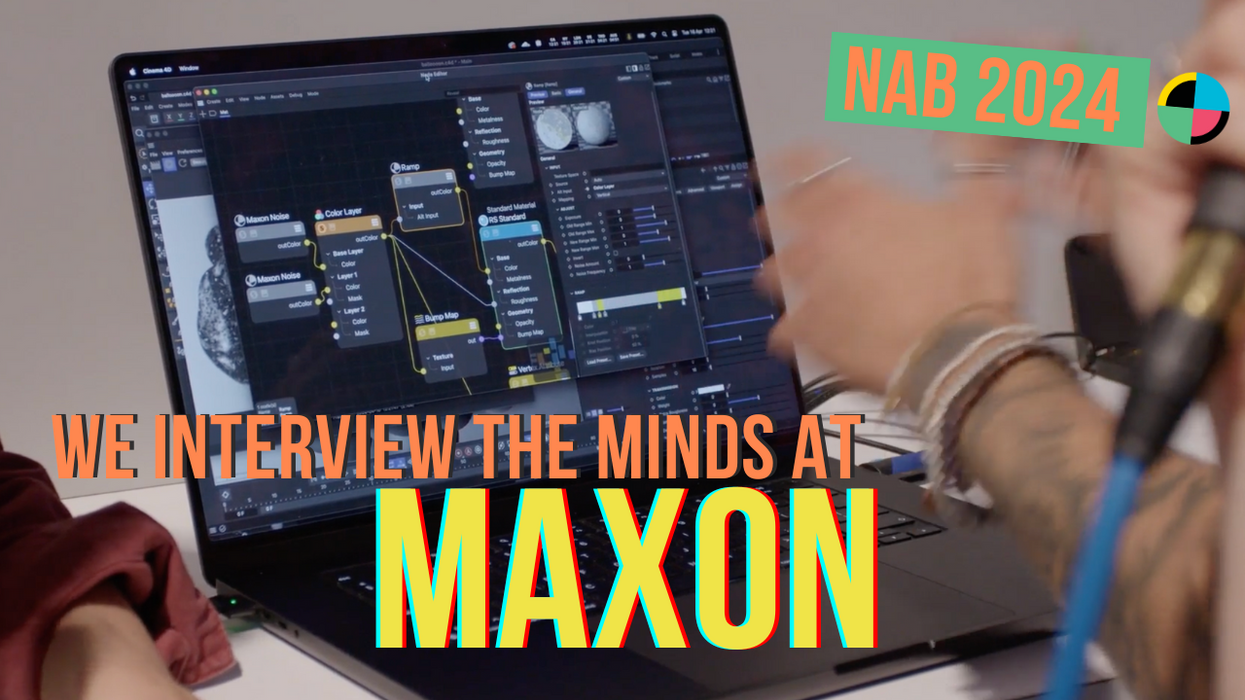'A Paris Education': Jean-Paul Civeyrac Reveals the Fatal Flaws of Film Students
In Jean-Paul Civeyrac's 'A Paris Education,' a budding auteur lives his dream of studying cinema in Paris.

"He’s the very picture of modern mediocrity. He’s going to sell out." Anyone who has studied film, especially in film school, knows the biting condescension of these words all too well. In Jean-Paul Civeyrac's A Paris Education, this gibe is delivered by an aspiring auteur, Mathias (Corentin Fila), who fancies himself the next Godard. (Film school graduates will also recognize this type.) For the film's protagonist, Étienne (Andranic Manet), a small-town cinephile with big-city dreams, Mathias is a catalyst of self-doubt. Will Étienne ever become a great artist, or is he doomed to fall into the traps of conformity? Will he discover an identity, or will he dissolve into the throngs of cineastes, artists, activists, and intellectuals that comprise his university class, forever searching for himself? (In a very French fashion, Étienne becomes embroiled in more than a few messy, passionate love triangles.)
Shot in black and white with a notably pared-down aesthetic, A Paris Education brings the experience of film school to life, with the concordant tensions between the mind, art, and matters of the flesh. What is cinema, after all, if not a fusion of all three?
No Film School caught up with Civeyrac—who has over 30 years of experience teaching at la Fémis, a major French film school—to discuss the essential components of a film education, his new preferred approach to cinematography, how he brought authenticity to the film's high-minded tone, and more.
No Film School: Why make a film about film school?
Jean-Paul Civeyrac: I didn't exactly want to make a film about film school. What I tried to do instead is to make a film about young people's desire for cinema, and these are people who meet each other at a university where they study film. I tried to capture the intensity and the seriousness of this desire for cinema that takes place at a time when studying is very important, as well as the work of artists—whether it's filmmakers or poets or painters or writers who fill us up. This is a time when these choices are really essential in a life.
"The foundation of a film education is to transmit an interest in all of cinema. The worst thing would be to only take an interest in contemporary cinema."
NFS: Some of the students in the film grapple with the idea that modern cinema is somewhat rehashed or contrived. Do you take that stance on modern cinema?
Civeyrac: This is the case for many young people who are starting out in cinema or are students in film. They find that contemporary cinema, whether it's commercial film or auteur cinema, somehow does not correspond to their expectations. It is this feeling of being unsatisfied and looking for something else. These unsatisfied young people have to look toward the cinema that does speak to them, and that can be both in works from the past, but also in works from the present.
In the film, we have this character of Eloise who makes films that are very artistically demanding and who Mattias recognizes as a very interesting filmmaker. I think that's what's at stake with these people's relationship to cinema—they're on a deep quest to find what speaks to them and what they identify with in cinema.

NFS: Many critics are saying that this film is, at least in part, an homage to the French New Wave. What of the style or aesthetic did you bring to this film?
Civeyrac: I think the essential contribution of the French New Wave was that it did not bury itself in commercial mechanisms of cinema. What the French New Wave filmmakers did is they tried to film or capture something that they themselves had lived. In fact, I have to say, I don't think that it's only the French New Wave. It's all the New Waves of the entire world throughout the 1960s.
"If my film is close to the New Wave films, it's in this way of trying to capture something of my life experience."
If my film is close to the New Wave films, it's in this way of trying to capture something of my life experience. I tried to film something that is close to me—something that I know—and to do it outside of the machinery of the screenplay and so on. I wanted the film to discover its own style in doing so.
NFS: Can you talk a bit about your aesthetic approach to the film in terms of shooting in black and white and keeping your camera movement simple?
Civeyrac: I'll start with black and white. I felt like black and white allowed me to add a little bit of fiction—something novelistic to what ultimately was quite close to a chronicle of contemporary students' lives. So, the black and white added some feel of a story. Black and white also allows one to capture the subjectivity of the protagonist.
In terms of style, I've made films where the camera was practically a character in the film. In this case, I did the contrary, which is that I attempted to have the camera basically just record what was going on in front of it: the dialogue. The camera is not trying to make things more beautiful than they are. I think the camera is at the same level as what's going on with the characters. The camera takes what the characters are going through very seriously, and it's not trying to create anything other than that particular thing.

NFS: What did you learn as a director in terms of approaching the film from this new angle approach to cinematography for you?
Civeyrac: Well, maybe what it taught me is modesty. I could put it this way. When Charlie Chaplin was asked why his films didn't have interesting frames—interesting camera movements—he said, "It's because what's interesting is me." If, like me and many other people, one considers that Charlie Chapman was a great director, you could say that cinema is not exist in visual effects. It's what takes place in front of the camera at a specific moment.
Perhaps this latest film of mine has afforded me the opportunity to take a step out of a kind of cinema that I would consider too visual and to find myself simply right in front of what I'm filming, looking dead ahead.
NFS: You have about 30 years of experience teaching film students. What did you bring from your experience with film students to this film?
Civeyrac: Being in contact with young people at the university studying film is to be in touch with youth, and with what young people are thinking and living today. So, I have the regular opportunity to note that these young people are driven by an inner flame that is quite similar to the one I felt when I was their age. That is something that's very encouraging. Whether you're 53 years old or 25 years old, we're all searching for something that relates to cinema. It simply allows me to feel less alone.
"It's important to look back at the potential paths that older cinema offers."
NFS: What are some of the most essential components of a film education in today's world?
Civeyrac: The history of cinema is a relatively young history, but it is over 100 years old. So for starters, I would say that any film student that isn't interested in the film that came before him or her has a problem.
The foundation of a film education is to transmit an interest in all of cinema. The worst thing would be to only take an interest in contemporary cinema, because that leads to forms that just reflect one another. It's important to look back at the potential paths that older cinema offers that sometimes demand to be taken up again and lead to interesting new forms in the contemporary arena.

Civeyrac: Very often I find that for young film students, the films they want to make are very much in their head. They're too cerebral. They don't keep in mind what's going to be in front of the camera.
When I'm with film students, with a camera, I try to remind them of the existence of what exists in front of the camera—the actors, the sets, etc. I think that this is potentially more important than what exists in their heads, or at least both things need to be taken into consideration and balanced.
NFS: On that note, can you talk to me about the process of production on this film and what it was like on set in front of the camera?
Civeyrac: The casting process for this film took place over two and a half months. Then, I did a lot of rehearsals before we started shooting in order to come to an agreement with the actors about the meaning of their dialogues and what their characters were like. That meant that once we started shooting, we were already quite deep into the film. So, when the actors turned up in their costumes, it was actually quite easy to film them. They were already the characters, and I didn't have to do a lot of explaining. We had already done that work.
The film was shot more or less chronologically. That was something that was very important to me, notably for the protagonist, because at the end of the film, he needs to have experienced everything that his character has gone through in that story. I do think that the last scene of the film, something in that character has changed that would not have changed if we had not filmed everything that went before first.












